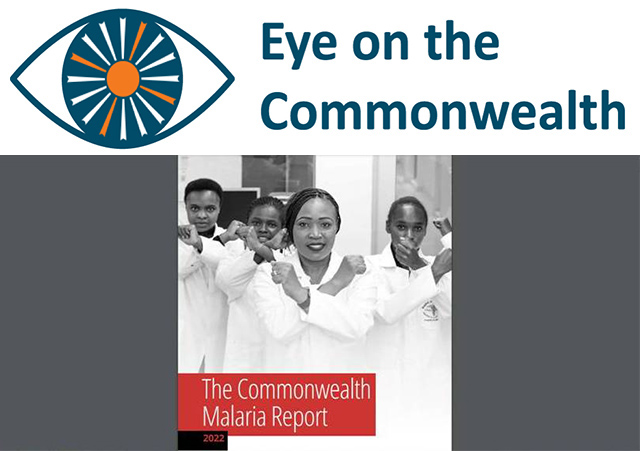
We are not yet at the end of the Covid-19 pandemic but we are perhaps at the beginning of the end. The effects of coronavirus on Commonwealth countries may take years to fully tabulate but we know, to a surprising degree of accuracy, how many cases there were (just under 93m as of late April, according to the Secretariat’s data platform, Commonwealth Innovation) and how many deaths (just over 1m).
What is less clear is how much steady progress in so many areas of development was undone during those two years that the virus tore through the world. Now a report presented at a virtual meeting of Commonwealth health ministers earlier this month has made clear how Covid wrecked a key pledge made at the London Commonwealth heads of government meeting four years ago: to halve malaria by 2023. With nine out of 10 Commonwealth citizens living in a malaria-endemic country, this was one of the organisation’s prime healthcare goals (and building towards the UN’s sustainable development goal of ending malaria by 2030).
The Commonwealth is disproportionately affected by malaria: despite having only a third of the global population, member states account for more than half of all malaria cases and deaths recorded each year. But the latest Commonwealth Malaria Report has revealed that for the first time since the pledge was made, both the cases and mortality rate were greater than in the baseline year of 2015. It concluded: ‘Disruptions in malaria services during the pandemic account for an additional 47,000 estimated deaths globally.’
Covid-19 vaccinations encapsulated global healthcare’s inequalities: more than 1.3 billion people in the Commonwealth are fully vaccinated, yet more than 40% have not had a single dose. In some of Africa’s least-developed Commonwealth countries, vaccination rates remain less than 15%. There was a similar gulf in successes against malaria. Bangladesh, Belize, India, Malaysia and Pakistan are all still on track to halve both malaria cases and mortality rates by next year. Malaysia had no cases for a third consecutive year and is moving close to elimination. Belize reached zero cases for the second year running. Even in Africa there were some bright spots amid the gloom: Ghana looks set to halve its cases, while it fell by more than two thirds in Rwanda between 2017 and 2020. Sierra Leone, which had the highest malaria mortality rate in the Commonwealth in 2015, is now two-thirds of the way towards the target.
But among the worst-performing member states, the disease continues to kill huge numbers of people – a child dies of malaria every minute in Africa. A comparison of deaths from malaria with those from Covid-19 gives a new perspective: only in South Africa, where 100,211 died from the virus, were there fewer deaths from malaria – just 38. The next highest death tolls among African states were in Kenya (5,649), Namibia (4,022) and Zambia (3,973). These figures are dwarfed by fatalities from malaria, however: Nigeria lost 199,689 people to the parasite compared with 3,143 to Covid, Mozambique had 23,766 malaria deaths (to 2,201), and Uganda had 21,699 (to 3,597). Tanzania lost 25,972 to malaria but only to 803 to Covid, though this may be down to under-reporting during the presidency of John Magufuli, who denied the reality of Covid but probably died from it.
Some countries managed better at maintaining the fight against malaria. The report notes how the pandemic did lead to some improvements: malaria programmes were integrated into Covid-19 treatment systems, such as holding virtual training workshops, for example, and giving out items such as insecticide-treated nets from door to door to ensure social distancing, which also improved distribution. Real-time data on topics such as malaria cases, stocks of drugs and equipment was also shared across the Commonwealth as never before, enabling action to be taken more promptly. In Mozambique, for example, essential health services were maintained by decentralising case management to community health workers. And most encouraging of all, the World Health Organization approved the global rollout of the RTS,S vaccine, the first for the disease, last October after successful trials in Ghana, Kenya and Malawi.
Despite these positive outcomes, however, the overall picture is that African countries, which already had the highest burdens, are falling yet further behind and the Commonwealth is further from achieving its goal of halving malaria than it has been for many years. Next month the Commonwealth Heads of Government Meeting will be held in Kigali. It is an occasion when member states must renew their commitment to this goal and redouble efforts to achieve it.
Oren Gruenbaum is a member of the Round Table Editorial Board.



